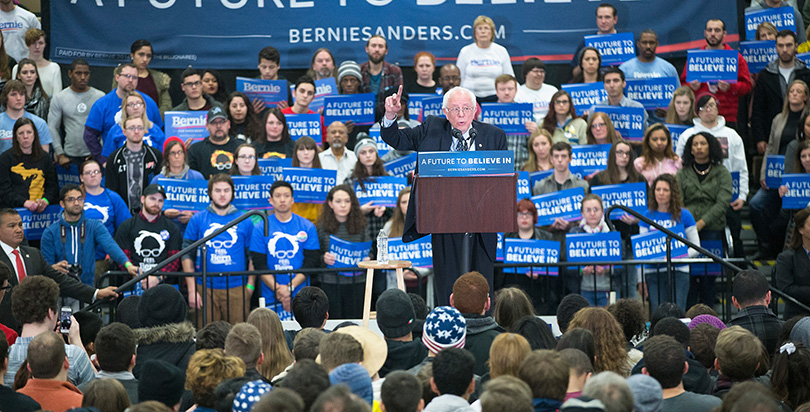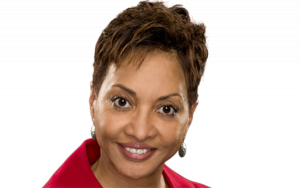Tucker: Progressives Like Bernie Sanders May Be Confused About Charter Schools, But Black Parents Aren’t

One of the most popular misconceptions is that charter schools represent “takeovers” by wealthy corporate interests or rich conservatives who are indifferent to public education and greedy for the tax dollars that keep public schools open.
That helps explain Sanders’ bungled response, during a recent CNN Town Hall, that he didn’t support those charter schools that are “privately run.” (The 74: Feeling Confused by The Bern? 4 Theories on What Sanders Actually Thinks About Charter Schools)
In fact, public charters are no bastions of 1 percenters. Instead, many of them serve as lifelines for poor kids, rescuing them from schools where little learning takes place. That’s why they are so popular with black families.
The contentious debate over charter schools is a fault line through the political left, a divide pitting public education reformers against those who favor the status quo. Though many black educators, especially those employed in grades K-12, are fierce opponents of charter schools, black parents take a different view.
Last year, the Black Alliance for Educational Options released a survey of black voters in four states — Alabama, Louisiana, New Jersey and Tennessee. It found that majorities in each state favor charters. Roland Martin teamed up with TV One, where he hosts a black-oriented news show, to sponsor a similar poll, and it showed similar results: more than 70 percent of black voters support charter schools.
It’s easy to see why if you take a clear-eyed look at the state of traditional public schools, especially in poorer neighborhoods. Lots of them are sub-par, with low scores on standardized tests, principals and teachers who fail to inspire and mediocre graduation rates.
Given limited means, many black parents feel trapped. They have neither the resources to buy homes in neighborhoods with good schools nor the money to afford private or parochial schools. Suburban school districts, by the way, punish parents who enroll children who don’t live in the district — some going as far as to make arrests. (The 74: Opinion: Why Are We Arresting Mothers for ‘Stealing’ An Education?)
(The income gap helps explain the difference in support for public charter schools. In 2011, the median wealth for a white household was $111,146, while it was $8,348 for a Latino household and $7,113 for a black household, according to government data.)
Public charter schools are free to attend, just like traditional public schools. They have open attendance policies. (Many public charters have more applications than seats; those schools usually select students through a lottery.).
To be sure, charter schools are no panacea. Some have failed; others are not doing any better than nearby traditional schools.
But the best among the charters are posting substantial gains, even among students from less-affluent families. Those are kids whose best chance for gaining a toehold in the economic mainstream is through a first-rate education.
Progressive politics are supposed to promote the poor, stand up for the weak and advocate for the voiceless. If so, the progressive movement ought to be a strong supporter of public charter schools.
Help fund stories like this. Donate now!

;)
